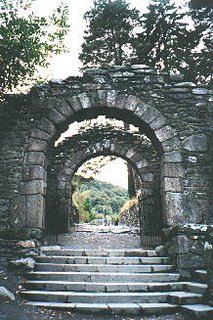
What is a Cell Church? How does it work, and is it the answer to the perceived famine in personal relationships in gathered church congregations? And since I used the phrase ... what is a gathered church.
This is not a scholarly article, but a reflection on conversations I've had with cell leaders in my current church. I have more conversations to have and more reflecting to do so this may well be a bit premature. (So there's all my getouts in case you disagree with me!)
So in my view a gathered church is a congregation that meets on Sunday for a worship service. It is common for people to come to this gathering but live outside the community that the church meets in. Often people don't see the other people in the congregation from one Sunday to the next. One means of addressing this is to have home groups, where the Bible is studied in a smaller more intimate setting. Traditionally this kind of church grows by new attenders at the gathered service becoming Christians, who may come in through personal invitation, an Alpha course or similiar, through a special event, or for the bravest ones, through curiosity.
Cell church exists as a network of groups that meet in people's homes. The Cell program of meetings and social events is structured so that they become in themselves, a worship service, an evangelistic event and an opportunity for close relationships to develop. The network is held together as one church in the Sunday gatherings, however for many, their Cell is their main expression of church. The church grows as people come along to Cell events, and join the gathered church through the cell. Cell leaders are encouraged to have a deputy and to coach them so that when the cell grows beyond twelve people the deputy leads a new group formed by some of the members of the original cell. This is called multiplying (rather than splitting or dividing).
In our church, both systems seem to be happening. Well sort of. There are cell groups made up of people who live in the community who seem to be the way into Christianity and the church for many people in the community. The cells are linked with a service provided to the community. The other cells consist largely of members who live outside the community and although the meetings use the Cell structure, and are for some members their main expression of church, the cells are not the main route into church. These cells do sometimes work together as a mission team providing services in the community or beyond in a way that might attract newcomers to the gathered services. The church has growing both through newcomers to the gathered service and through newcomers to the local cells. Advocates of gathered church might look on a nd say, why are so many folk in the "home groups" not attending the Sunday services, and advocates of cell might look and say why are the non-local cells not multiplying. But people are growing in relationship with each other, in genuine pastoral pulling together for each other. And new people are becoming believers, and for many more, encountering the people in the church has been good news in their lives. Not all the stories have happy endings (but then they haven't necessarily ended yet!). And each of the cells and the gathered church has had to face challenges and changes to any structure or standard pattern of working that they've adopted.
nd say, why are so many folk in the "home groups" not attending the Sunday services, and advocates of cell might look and say why are the non-local cells not multiplying. But people are growing in relationship with each other, in genuine pastoral pulling together for each other. And new people are becoming believers, and for many more, encountering the people in the church has been good news in their lives. Not all the stories have happy endings (but then they haven't necessarily ended yet!). And each of the cells and the gathered church has had to face challenges and changes to any structure or standard pattern of working that they've adopted.
 nd say, why are so many folk in the "home groups" not attending the Sunday services, and advocates of cell might look and say why are the non-local cells not multiplying. But people are growing in relationship with each other, in genuine pastoral pulling together for each other. And new people are becoming believers, and for many more, encountering the people in the church has been good news in their lives. Not all the stories have happy endings (but then they haven't necessarily ended yet!). And each of the cells and the gathered church has had to face challenges and changes to any structure or standard pattern of working that they've adopted.
nd say, why are so many folk in the "home groups" not attending the Sunday services, and advocates of cell might look and say why are the non-local cells not multiplying. But people are growing in relationship with each other, in genuine pastoral pulling together for each other. And new people are becoming believers, and for many more, encountering the people in the church has been good news in their lives. Not all the stories have happy endings (but then they haven't necessarily ended yet!). And each of the cells and the gathered church has had to face challenges and changes to any structure or standard pattern of working that they've adopted. So its kind of messy. Or is it messy, or just far more intricate than any human designed system, like the pattern of veins in a leaf. I think I like that God uses human structures but stirs, moulds and bends with his breath, to re-create something so much more intricate and complex, constantly reminding us that it is through Jesus that the ultimate relationship is found, that restoration of relationship is something he designed, and that through his Spirit that the church grows.














